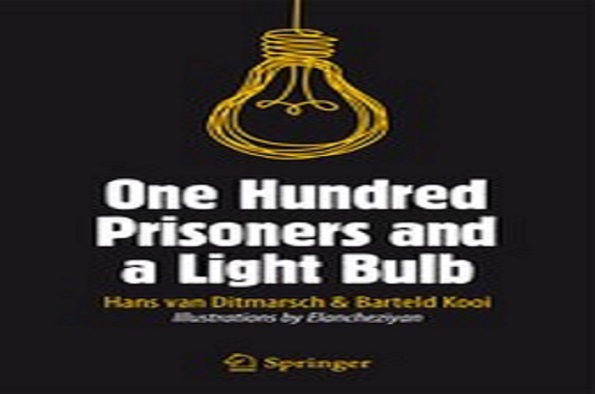
One Hundred Prisoners & a Lightbulb. Solving Logical Puzzles.
- 54297
- Jane Gallagher
- Admission: The event is FREE but please book a place at the following: https://www.eventbrite.co.uk/e/one-hundred-prisoners-and-a-light-bulb-solving-logical-puzzles-tickets-35630793663
Add this event to my calendar
Click on "Create a calendar file" and your browser will download a .ics file for this event.
Microsoft Outlook: Download the file, double-click it to open it in Outlook, then click on "Save & Close" to save it to your calendar. If that doesn't work go into Outlook, click on the File tab, then on Open & Export, then Open Calendar. Select your .ics file then click on "Save & Close".
Google Calendar: download the file, then go into your calendar. On the left where it says "Other calendars" click on the arrow icon and then click on Import calendar. Click on Browse and select the .ics file, then click on Import.
Apple Calendar: The file may open automatically with an option to save it to your calendar. If not, download the file, then you can either drag it to Calendar or import the file by going to File >Import > Import and choosing the .ics file.
We will present a solution, however his public lecture will mainly address such puzzles of knowledge in general and their historical roots. One such root is a 19th century German translation of a French novella by Rabelais. There are many other riddles, such as the Muddy Children Puzzle (also known as the Wisemen Puzzle), the Surprise Examination, and Monty Hall. They often involve a (seemingly) paradoxical aspect making agents knowledgeable by announcements of their ignorance. More information on such puzzles is found on http://personal.us.es/hvd/lightbulb.html. This also refers to our puzzlebook entitled 'One Hundred Prisoners and a Light Bulb' (currently available in four languages, including English). There is a relation with the area in logic known as dynamic epistemic logic.
Hans van Ditmarsch is living proof that mobility does not harm a successful academic career. He works in Nancy, France. Barteld Kooi is living proof that mobility is not necessary for a successful academic career. He works in Groningen, the Netherlands.
